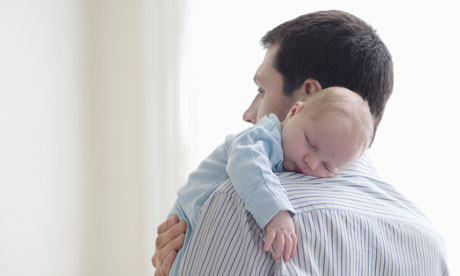
Nothing I have experienced in my life has ever touched the moments when my children were born. No drug could match the euphoric rush of pleasure and relief at knowing both mother and baby were well; the intense wave of love that swept over me, both for the newly born son pressed to my chest and for my beautiful partner who had just conquered the challenge of nature's most demanding and rewarding miracle.
Like most couples in the modern developed world, our experiences in the maternity ward were joyous and safe and required little medical intervention beyond a bit of pain relief and a few stitches. (And that was just for my knuckles after 26 hours of gentle hand-holding. Badum tish.)
For a small proportion of couples, however, childbirth can bring serious complications. Uncontrolled haemorrhaging, pre-eclampsia, thrombosis and many other conditions can suddenly transform the occasion into an unexpected nightmare of frantic intervention, emergency surgery and intensive care units.
The excellent web information resource Healthtalk Online has published a new section explaining what happens when childbirth goes wrong. It was conducted by Prof Marian Knight of Oxford University and based on interviews with 35 women who experienced life-threatening complications in childbirth and 11 of their partners, including one same-sex couple. It explains the various life-threatening conditions that can arise, what is likely to happen after the birth and what support and medical help couples should be able to receive. The section is in six parts, one of which deals with the emotional and psychological impacts on the partners involved.
One can only begin to imagine how the intense joy of a healthy childbirth is darkly shadowed by the intense stress of a life-threatening emergency. Interviewees described being left uninformed for hours at a time, unaware of whether mother or baby were alive or dead. One man saw a puddle of placenta through the surgical theatre doors just before two nurses exited the room with an empty incubator. He believed he had just seen his dead child on a table. The horror for one interviewee was so great he developed post-traumatic stress disorder (PTSD) and had a breakdown, which has left him unable to work for seven years.
Such testimony should be enough to prompt medical and nursing staff to remember their duty of care, not just to the patient and baby, but to family as well. Knight was quite right to call for greater consideration, while pointing out that some tiny steps, such as a reassuring, informative word or two, or a small act of kindness, can make an enormous difference. One doctor, for example, thought to take a camera-phone picture of the new baby to show the father who was not yet allowed to enter the operating room.
The interview subjects of this study deserve sympathy after going through such barely imaginable terrors. They deserve gratitude for participating in a project designed to improve public understanding and help others who may be going through something similar. They do not deserve to be mocked and misrepresented by sections of the media bent on creating sensation but, unsurprisingly perhaps, the Daily Mail has raked the gutter. Under the headline "The fathers so shocked by being at traumatic births that they get post traumatic stress" the paper ridicules the diagnosis of PTSD, and falsely claims: "Difficult or traumatic childbirth can be as stressful and horrific for the father as it is for the mother – according to men." None of the interviewees or researchers had made any such claim, and most of the interviewees were mothers, not fathers.
I realise that a Guardian hack disagreeing with a Mail hack hardly counts as news, but such malicious and mendacious reporting has real and harmful consequences and needs to be challenged, and the Mail is not the only offender on this charge-sheet. Coverage like this trivialises mental illness, implying that someone with a severe and debilitating condition is some kind of ridiculous whinger or malingerer. It exploits the generosity of those who volunteer their time and intimate personal memories to researchers in order to help others, and makes it very unlikely they'd be willing to talk publicly again. It undermines the very worthwhile and sensible advice to both the public and professionals that is offered by Knight and colleagues.
The most pernicious effect, however, may be in perpetuating the archaic myth that it is some kind of horrible experience for men to be with their partners at the birth of their children. It astounds me that some men still need to be persuaded of the rewards. Any man who has the opportunity should not miss a minute, and should enjoy every second. Trust me, you will not end up with PTSD.

